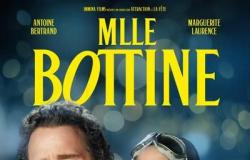
The first dinosaur films in history were part of a now lost genre: cave comedies. In other words, The Flintstonesbut at the beginning of the 20th century. By this time there were already novels and comics of all kinds about large reptiles: although we like to believe that they only became popular after Jurassic Parkthe truth is that Dinomania existed well before and over several decades. But Steven Spielberg did something others didn’t see coming: he turned the roar of the T-Rex into a myth.
>> Neither the T-Rex nor the Mosasaurus: the most powerful dinosaur in Jurassic Park wasn’t actually that strong in real life!
An invented roar
When we say that Jurassic Park changed the history of cinema, we say it literally: cinemas started installing DTS sound, which is now the standard, just to make the film sound the way it should. This is how the public applauded wildly at the sound mix of a baby elephant, a tiger and a crocodile. In other words: the roar of the Tyrannosaurus Rex as we know it today. And it’s a good thing they took such a risk, because at the time, only seven skeletons of the creature had been found. More or less.
>> “I’m not ashamed to say it“: Steven Spielberg admits that Jurassic Park is the secret sequel to one of the best monster movies of all time
But in reality, science has discredited the film. In fact, the T-Rex would have had sounds closer to those of birds: no animal at the time had vocal cords, so neither did dinosaurs. The roar was impossible. Perhaps they resembled the whistles of a crocodile or the sounds of some birds, but there are doubts about this. What is certain is that the T-Rex would not have shocked us as much if it had chirped instead of roaring.
>> This sci-fi movie about dinosaurs was released in theaters a month before Jurassic Parkbut no one knows it exists
It should also be noted that the skin of the T-Rex was probably not the one seen in the film: it would have been covered with feathers, similar, it is said, to those of the ostrich or the emu .
Article written in collaboration with our colleagues from Sensacine.





